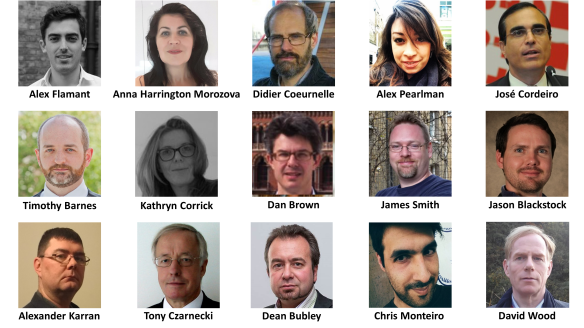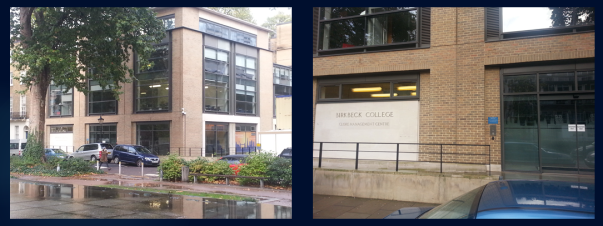Press release: Transpolitica 2016 conference roundup
Futurists and transhumanists at Transpolitica 2016 highlight how the acceleration of technological change poses widespread opportunities and challenges for politics
2016 has been a momentous year for politics. Will 2017 be a year of retrenchment and consolidation?
That would be unlikely according to participants at Transpolitica 2016, a London Futurists event (London, Birkbeck College, 3 December 2016) which forecast powerful socioeconomic pressures and a rise in political turbulence in the face of the rapid pace of technological change.

Echoing the famous phrase of web software pioneer Marc Andreessen, “Software is eating the world”, the takeaway from Transpolitica 2016 is “Technology is eating politics”.
New technological possibilities urgently demand fresh thinking regarding potential regulations, restrictions, incentives, subsidies, and equality of access.
- Faster communications via social media, rather than delivering an Internet-enabled “wisdom of crowds”, have been multiplying the spread of fake news that ingeniously but maliciously propagates itself, sowing confusion and fracturing communities into opposing segments that operate within self-reinforcing antagonistic bubbles
- Rather than a useful discussion taking place between “experts” and the public, suspicion and distrust have increased dramatically, under pressure from change that seems too rapid and chaotic, and which evidently leaves too many people behind
- Genetic editing, using techniques such as CRISPR, is already eliminating various diseases and enabling “better than well” quality of life, but for some threatens socially destabilising “designer babies for the 1%”
- Financial pressures from failing healthcare systems could be alleviated following smart investment into anti-aging treatments and rejuvenation therapies that are, however, opposed by certain groups as “unnatural”
- Principles adapted from open source development can be applied to enable the collaborative creation and public review of new political policies
- Innovations from civtech and politech are yet to be applied in political governance and the civil service in the way fintech is being applied to the financial sector
- Driverless cars are poised to significantly cut accident rates and reduce pressures on the environment, but necessitate legislative support and changes in public mindset
- Automation and AI are predicted to transform many jobs, requiring large-scale retraining and a medium to long term transition to a viable form of universal basic income
- The advent of the Internet of Things is resulting in surveillance capitalism that uses streams of human-generated data to manipulate consumers as never before
- Improved algorithms, linked to growing pools of big data, stand ready to usher in a new age of algogracy as an evolution of democracy, potentially sidestepping the perceptual and reasoning biases of voters, though risking the profound subversion of politics by whichever organisations control the algorithms in use
- Divisions between bioprogressives and bioconservatives will complicate existing political categories, and accelerate a likely realignment of political parties.
David Wood, Executive Director of Transpolitica, commented as follows:
At a time when many people are wearying of political engagement, it’s all the more important to enable a thoughtful, informed discussion about the disruptive role of new technology in politics. What’s most needed is clarity on the way that technology, wisely deployed, can dramatically enhance the quality of life for everyone. This technoprogressive transhumanist vision of sustainable practical abundance can fill the void that is currently driving voters into warring camps.
Alexander Karran, Senior Researcher at Transpolitica, added:
The same set of technologies that threaten manipulation and dehumanisation also have the potential, if mixed in different ways, to provide personalised healthcare, emotional and cognitive support and enhancement, better economic modelling, and comprehensive solutions to deep social problems. But society’s leaders will need the foresight to grasp these possibilities and the agility to turn them into reality.
Notes to editors:
The stated theme of Transpolitica 2016 was “Real world policy changes for a radically better future”. The declared goal of the conference was:
To formulate and review policy recommendations which can become the focus of subsequent cross-party campaigns for legislative changes. In turn, these legislative changes will have the aim to enable better politics, better communities, and better human experience – by allowing society to take good advantage of the remarkable transformational potential of accelerating technologies.
Transpolitica researchers, along with activists in the Transhumanist Party (UK), plan to initiate a number of technoprogressive campaigns in the opening months of 2017.
Recordings of the presentations and discussions from Transpolitica 2016 are in the process of being added to the event website.
Transpolitica is a technoprogressive think tank whose objective is to facilitate better public and political engagement with the social, economic and political opportunities presented by new technologies. It is associated with the H+Pedia project whose purpose is to spread accurate, accessible, non-sensational information about transhumanism among the general public. Transpolitica also works with the UK Transhumanist Party whose aim is grassroots engagement with issues raised by increased use and presence of technology in society as a whole.
London, 8th December 2016



